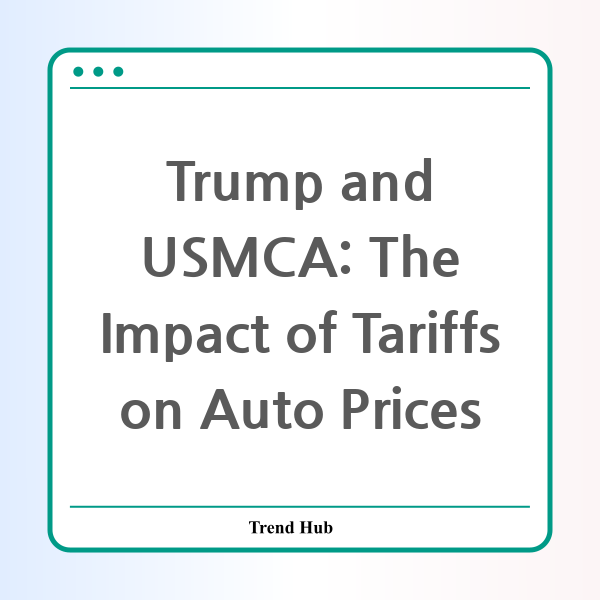* This website participates in the Amazon Affiliate Program and earns from qualifying purchases.

Are tariffs on foreign cars the secret weapon for boosting American manufacturing? President Donald Trump’s recent comments suggest that he believes they are. In a series of interviews, he expressed a blatant indifference to the potential rise in car prices due to his tariffs, arguing instead that these measures will trigger a renaissance for the American auto industry.
During a conversation with NBC News, Trump asserted that he "couldn’t care less" if tariffs on foreign-made vehicles lead to higher prices for American consumers. His assertion was clear: the goal is to draw more consumers toward American-made cars. Trump seems to be banking on the idea that if the prices of foreign vehicles rise, American-made alternatives will naturally become more appealing. This strategy aligns with the core objectives of the United States-Mexico-Canada Agreement (USMCA), which aims to strengthen American manufacturing and protect jobs within the country.
But how exactly are these tariffs affecting the auto market? Here are some key takeaways from Trump's recent remarks:
- Encouraging American Production: Trump emphasized that he wants automakers to focus production back in the United States. He stated that if car manufacturers want to remain competitive without facing tariffs, they should consider moving their assembly lines back home. This is a crucial aspect of USMCA, which was designed to ensure that more auto parts are sourced domestically.
- Tariffs are Here to Stay: The president confirmed that the tariffs on foreign automobiles are set to be permanent. He mentioned that USMCA-compliant auto parts would remain tariff-free until further notice, signaling that compliance with the new trade agreement is not just a suggestion but an expectation.
- Market Reactions and Consumer Sentiment: While Trump's administration downplays concerns regarding price hikes, the reality is that consumers might feel the pinch in their wallets. Automakers have warned that tariffs could lead to an increase of thousands of dollars in vehicle prices. Whether consumers will still be willing to buy American cars at these inflated prices remains to be seen.
Despite the controversies, Trump remains unfazed by the potential stock market volatility or concerns from consumers. He pointed to polling numbers showing a growing sense of optimism among Americans, despite the current economic climate. This detachment raises questions about the administration’s understanding of the direct implications of such tariffs on everyday Americans.
Furthermore, the brewing tensions with Canada, where Prime Minister Mark Carney has hinted at retaliatory tariffs, could escalate the situation, leading to a possible trade war. The delicate balance of trade relations in North America relies heavily on how both parties respond to these challenges.
In summary, while Trump’s approach to tariffs aims to strengthen American auto manufacturing, the consequences may unfold in varied and unexpected ways. As consumers and businesses brace for these changes, the impact of USMCA on the automotive landscape remains a hot topic ripe for discussion. Will higher prices deter buyers, or will American consumers rally behind domestically produced vehicles? Only time will tell, but one thing is certain: the outcome of this trade strategy will be pivotal for the future of the American auto industry.
* This website participates in the Amazon Affiliate Program and earns from qualifying purchases.